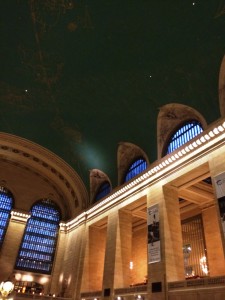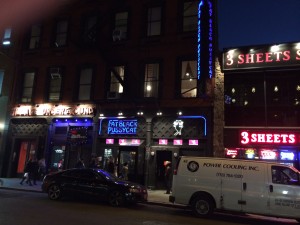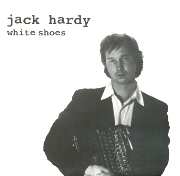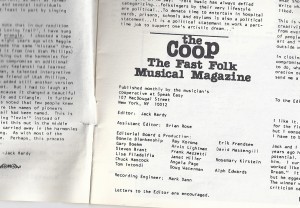Into the Village for an evening in Night Vale
Yes, I was in the audience for their live show on Friday night.
I couldn’t make a whole day of hanging around in New York, unfortunately — I’ll have to save that for another time. So I hopped the train that would get me there in time for dinner before the show.

I love the ceiling at Grand Central
The show was at the Skirball Performing Arts Center, down in the heart of Greenwich Village (where I used to hang in my folkie days). Whenever I visit the Village, I experience a weird sort of double vision. I see what’s there, and my interest and response is to what is really there — but some of the emotional resonance remains of what was there when I was young, when the Village was new to me. It’s sort of like looking at a person, and also at their shadow, but the shadow does not match the person. Or like standing between two mirrors, and seeing that infinite replication — but somewhere deep in the repeated reflections, the images no longer match the original.
Not in a spooky way (which it certainly would be if that happened in real life).
In fact, there are a couple of places in the Village that I can recall from the very first time I was there, when I was eighteen, and the sidekick of a girl who knew a comics writer, and we went to a party in an apartment off Washington Square. If I stand in one of those places, I get a triple resonance (what it meant to me at eighteen; what it meant to me in my twenties and thirties; what it means as I look at it now) that really is quite interesting, and quite odd.

This used to be Gerde’s Folk City. Now the Fat Black Pussy Cat, which is itself a name of long fame, but not at this location.
I wanted to wander the streets, take in the sights, but — damn! It was eighteen degrees (Fahrenheit, that is; -7.77 for you Celsius users). Way too cold for perambulating.
The show itself — Ah. Love Night Vale, love the live shows, love the podcasts, love it all.
I won’t say too much about the content of the show — they’re going to be releasing a recording of it.   But I will say that the script was one called “The Librarian”, versions of which they’ve performed live in the States several times.
An updated version was also used in their massive tour of Europe last year.  So, even though live shows of Welcome to Night Vale are staged as radio plays, with people standing and talking into microphones while holding their scripts in their hands, mostly they didn’t need to consult the scripts very often. They’ve done this show a lot.
The show had everything you could want from an episode of Welcome to Night Vale: the eerie; the amusing; the weird-to-you-but-perfectly-normal to us; the romance (with many a squee! from the fangirls); the charm; and the sudden utterance of a deep truth about reality that you did not notice before but which now cannot be denied…
All that stuff.
But it was also the scariest episode I have ever heard.  Edge-of-the-seat, heart-pounding scary.
And at one point, in the middle of the scariest part, I found myself asking: How is this even possible?
I looked around.
One big room. 850 people.
One man in front. All alone.
Saying… words.
850 people riveted. Fascinated — and scared.
How does that work?
Of course, we see this every day, don’t we?  We take in words, we put out words. And the words scare us, comfort us, enlighten us, take us away from some things, put us directly into the true and beating heart of other things.  We escape, we approach.
We can subtract everything else, put ourselves in dark rooms with nothing but a voice (or eyes moving across a page) — and we blossom universes inside.
I feel like “imagination” is not a strong enough word for this.  Because “imagination” seems to imply making stuff up, an apparently frivolous act. But in order to understand anything, you have to also imagine it.  Replicate it, reflect it, model it internally, matching it to reality, but containing it within yourself.
So… this is an act of creation undertaken by 850 people simultaneously, using the cues, clues, raw material and enacted example provided by the man in front.
Well, that’s the phenomenon; then there’s the skill involved.
Crappy, ham-fisted writing would have made the shared creation impossible. But Jeffrey Cranor and Joseph Fink are very, very good writers indeed. Every word uttered on that stage, every concept, every emotion, was put there by them: all the movement of story, and the orchestration of emotion, set up by them.
And a lousy actor would have destroyed it all. But Cecil Baldwin was almost impossibly brilliant in his role. Maybe there are other people who could have delivered those words, and done it well; but it would have been a different story, it wouldn’t have been this story. I can’t say enough good things about him. The man is a treasure.
And there was the skill of the audience. There exist many, many people who cannot do this thing – this taking in of words and making them real inside. People of that type, placed in that audience, would experience nothing but, perhaps, perplexity. But I believe that the audience that night was composed of people with great talent in turning the seen and heard into the experience of Art.
Well.  That’s rather a lot of philosophizing about a live episode of a very popular podcast…
But, see, that’s another thing I love about Welcome to Night Vale; it makes me think about this stuff.  I get not only the pleasure of the episode, but the meta-pleasure of watching something done well.
After the show, I wanted to hang out at a coffee shop and sip coffee contemplatively while writing in my journal. Unfortunately it was so cold that every human being was driven indoors, and every restaurant and coffee shop was packed with people elbow-to-elbow with no room for even one more person with a pen and some paper.  So I took the subway uptown and caught the train home.


